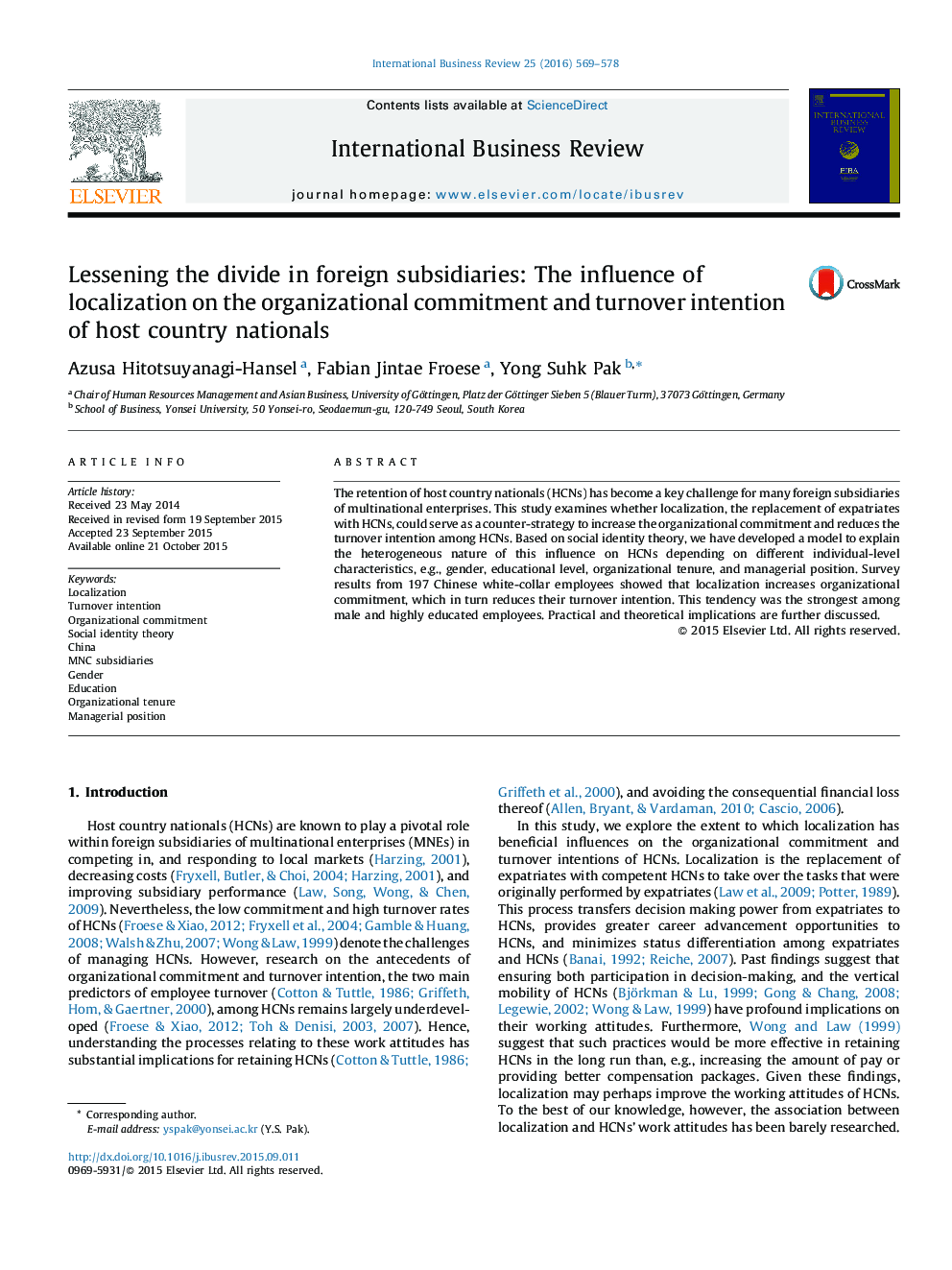| Article ID | Journal | Published Year | Pages | File Type |
|---|---|---|---|---|
| 1000254 | International Business Review | 2016 | 10 Pages |
•Localization of subsidiary staffing increases organizational commitment among host country nationals, which in turn reduces their turnover intention.•Influence of localization on organizational commitment is heterogeneous across diverse demographic groups of host country nationals.•Localization's influence is significant especially among male and highly educated host country nationals.
The retention of host country nationals (HCNs) has become a key challenge for many foreign subsidiaries of multinational enterprises. This study examines whether localization, the replacement of expatriates with HCNs, could serve as a counter-strategy to increase the organizational commitment and reduces the turnover intention among HCNs. Based on social identity theory, we have developed a model to explain the heterogeneous nature of this influence on HCNs depending on different individual-level characteristics, e.g., gender, educational level, organizational tenure, and managerial position. Survey results from 197 Chinese white-collar employees showed that localization increases organizational commitment, which in turn reduces their turnover intention. This tendency was the strongest among male and highly educated employees. Practical and theoretical implications are further discussed.
